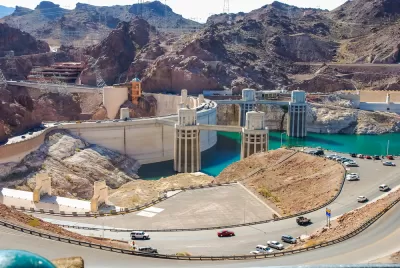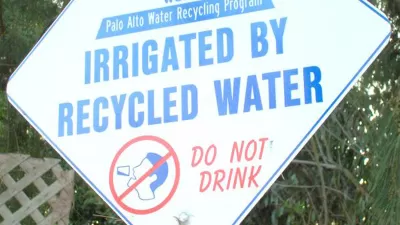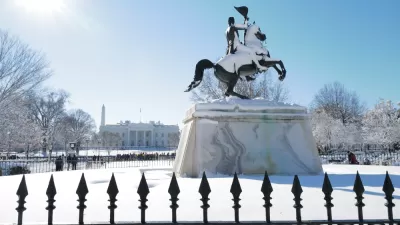In celebration of Water Week in the United States, as well as World Water Day, as celebrated by the United Nations, Brookings has complied a list of ten facts about water policy and infrastructure.

"From the water safety crisis in Flint, Michigan to the near-disaster with the Oroville Dam in California, a string of water-related events have made headlines, and called into question the U.S. focus on keeping critical water systems safe and functioning," according to a post by Alison Burke. So it's fortuitous timing that Water Week has arrived in the United States, and that today is the United Nation's World Water Day.
The post collects the Brookings team's research on the matters of water, so the article opens the floodgates, so to speak, to a lot more reading. Here are the ten facts as listed, with the relevant studies, research, and details available after the jump:
- Water plays a critical role in the economy.
- The federal government only accounts for a small share of total public spending on water infrastructure.
- Geographic and political boundaries can pose challenges to water investment
- The cost of water is on the rise in many cities.
- There's a mismatch between water investment demand and institutional capacity.
- Only a handful of drinking water utilities in the largest cities nationally rank highly in water investment
- The private sector owns most of the nation's dams.
- 69 percent of the nation's dams were built before 1970.
- Climate change and water cycles are closely linked.
- Despite concerns over water safety and infrastructure, Americans have greater access to clean water than most people around the globe.
FULL STORY: 10 facts about water policy and infrastructure in the US

Maui's Vacation Rental Debate Turns Ugly
Verbal attacks, misinformation campaigns and fistfights plague a high-stakes debate to convert thousands of vacation rentals into long-term housing.

Planetizen Federal Action Tracker
A weekly monitor of how Trump’s orders and actions are impacting planners and planning in America.

In Urban Planning, AI Prompting Could be the New Design Thinking
Creativity has long been key to great urban design. What if we see AI as our new creative partner?

The Vast Potential of the Right-of-Way
One writer argues that the space between two building faces is the most important element of the built environment.

Florida Seniors Face Rising Homelessness Risk
High housing costs are pushing more seniors, many of them on a fixed income, into homelessness.

Massachusetts Budget Helps Close MBTA Budget Gap
The budget signed by Gov. Maura Healey includes $470 million in MBTA funding for the next fiscal year.
Urban Design for Planners 1: Software Tools
This six-course series explores essential urban design concepts using open source software and equips planners with the tools they need to participate fully in the urban design process.
Planning for Universal Design
Learn the tools for implementing Universal Design in planning regulations.
Gallatin County Department of Planning & Community Development
Heyer Gruel & Associates PA
JM Goldson LLC
City of Camden Redevelopment Agency
City of Astoria
Transportation Research & Education Center (TREC) at Portland State University
Jefferson Parish Government
Camden Redevelopment Agency
City of Claremont





























